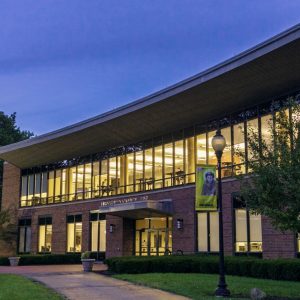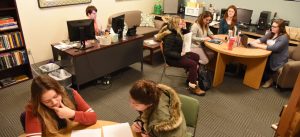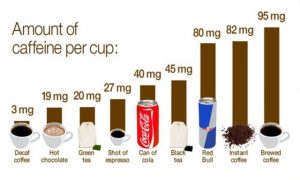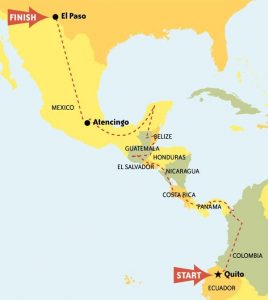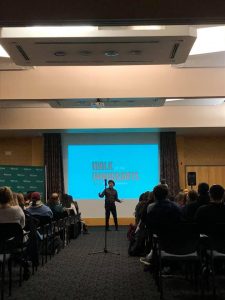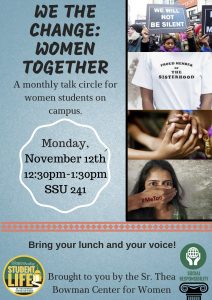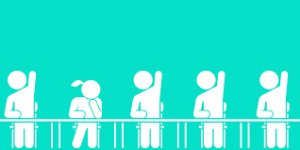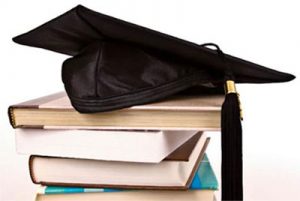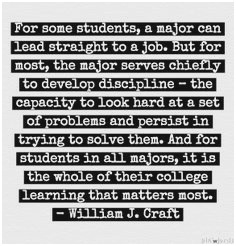As a senior at Siena, I have been through the finals process over and over again; I know the stress of the last weeks of the semester and trying to get everything handed in before heading home for a month-long break. Here are my top 10 tips for finals!
- Study wherever you can focus best. Any tips you read about finals often suggest only studying in the library or in a classroom, a place where you won’t get distracted by your phone or friends. For me, personally, the library isn’t always the place where I can focus. The quiet floor is just too quiet, and the main level sometimes gets too loud. I spend a lot of my time studying and writing my essays in Casey’s because I work well with medium-level background noise.
- Don’t feel pressured to study in groups. Another common tip you’ll hear is to study or work with friends. Though studying in a group can be helpful and boost memory retention, I find myself getting off-topic and distracted with my friends around. I know I work best as a solo studier, so I spend most of my study/writing time alone. If you know you study better in a group, be sure to use the method that works best for you.
- Take breaks. Sometimes when you’re so close to finishing your review guide or closing in on that concluding paragraph, it feels counterintuitive to stop working. But be sure to listen to your body during these hours-long Tstudy sessions. If you’re not eating, drinking water, or moving around enough, your body will respond in a negative way, making it harder for you to concentrate. Consider taking a 10-minute break for every 50 minutes of work.
- Review class notes. Anyone who knows me knows I am an extensive note-taker. Most exam or final paper material is discussed in class, so be sure to pay attention in those final days of the semester.
- Make a study guide. Most of my finals at this point in college are papers, but when I have a test coming up, I always make a study guide. This usually consists of just copying my class notes, unless the professor was generous enough to share a review guide. If your professor gives you study materials, use them. They’ll only help you in the long run.
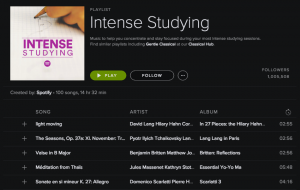
- Create your own study playlist. Studying/writing with music is a dividing decision among college students. I personally love having music playing while I’m writing an essay or reviewing flash cards. The type of music you listen to can affect the way you study as well. I would suggest listening to something more ambient and instrumental to keep your stress levels low, but listen to whatever makes you feel motivated and allows you to focus.
- Hit the gym or do yoga. When I’m in the middle of finals week with no end in sight, I always try to exercise. Exercise is a form of stress relief for me, and it also gives you a break from studying. If you’re not into running or lifting weights, yoga is a great alternative. Yoga is known for helping manage stress. If you’re a beginner and want to learn, Siena offers free yoga classes. These yoga and mindful meditation sessions will take place on Monday Dec. 3rd and Monday Dec. 10th in the MAC aerobics room.
- Talk to someone. When I’m feeling overwhelmed, I usually call my mom or one of my close friends. Talking to a loved one can help you feel less stressed about your upcoming work and the end of the semester, so take the time to reach out and have a conversation with someone.
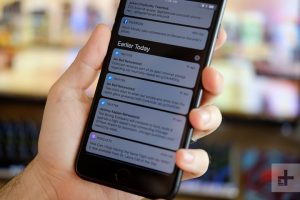
- Turn off your phone notifications. We are constantly bombarded with notifications – from texts, emails, social media. With Apple’s new “screen time” feature, I am much more aware of the ridiculous amount of time I waste scrolling on my phone. During finals, my phone is easily one of my biggest distractions. I always have it within reach while studying or writing, which makes it so tempting to check it every few minutes. Turning off notifications or turning on “Do Not Disturb” can really help with the urge to check your phone so frequently.
- Don’t study the night before the exam. This might seem contradictory, but I think it’s important to give your brain a break the night before a big test. Cramming for exams negatively impacts your memory retention and increases stress, so let yourself relax the night before. Get a good night’s rest, watch a movie, or relax with friends.
Good luck with your finals, Saints! Hang in there – it’s almost time for the month-long break!
